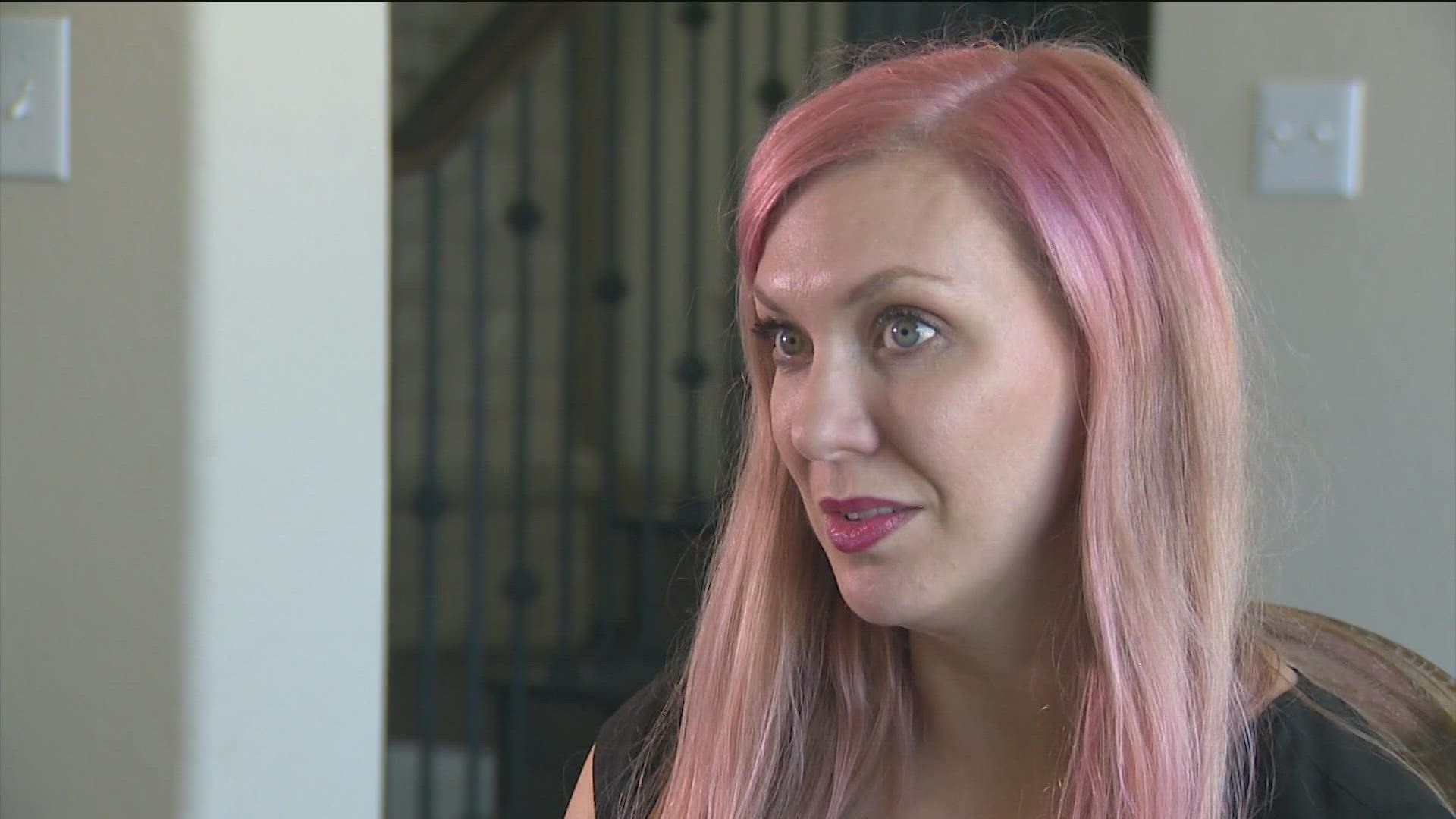AUSTIN, Texas — Many women are feeling anxious, as abortion access in Texas will soon be completely banned.
Nichelle Haynes, who is a perinatal psychiatrist in Austin, says she has been getting a lot of questions from her patients and from women reaching out on social media about what this means for their future rights and access to abortion and reproductive health resources.
She said the trigger law planned to take effect in Texas has medical providers confused and concerned, because she said it is unclear.
“How will things be interpreted is not very well defined,” said Haynes. “We've reached out to our malpractice carrier and they're like, 'Oh, we're not sure either. Try to do your best to interpret it in a way that you're still following the law, but make sure that you're also caring for your patients,' and those right now, don't go together.”
Elisabeth Netherton with Mindpath Health in Houston feels the same way, specifically about the only exception to the law, which is if a woman’s life is threatened.
"I think it creates so much uncertainty about how close to death someone has to be before an intervention is warranted. And I think it creates a culture of intervening between the doctor/patient relationship, which we as physicians hold sacred," said Netherton.
Netherton and Haynes said this is not just creating anxiety for women who think they may need an abortion, but for women who have had difficult pregnancies in the past and want to have more children.
“So, I hear really commonly from moms with pregnancies with severe medical complications that that was a choice that they never expected to have to make,” said Netherton, referring to women who end up getting abortions due to medical complications.
"The majority of people that I have seen who have had abortions have been very wanted pregnancies – whether it be from infertility and then they have an ectopic pregnancy, or they are able to get pregnant and then they find out that there are anomalies in the fetus – that is not compatible with life," said Haynes.
Haynes has had patients who have traveled out of state for abortions over the past 10 months since Senate Bill 8 was made law, and she said that is traumatic in itself.
“Having to fly or drive, having to be by yourself in a clinic that you don't know, in a place you don't know, having to recover without your support system there,” said Haynes.
She said the concern she and other women have spurs from not only the issue of abortion access, but that more rights could soon be taken away, like access to contraception, which was brought up by Supreme Court Justice Clarence Thomas.
“Gosh, I can't imagine if we would go that far. It would be a really scary thing,” said Haynes.
She said although this can be scary and anxiety-inducing for many women, she said there are people who can assist you and she encourages people to reach out for help.
“You don't need to be alone in something like this,” said Haynes. “You deserve support in these times.”
The American Psychological Association also released a statement on the mental health impacts of Roe v. Wade being overturned, saying in part:
“This ruling ignores not only precedent but science, and will exacerbate the mental health crisis America is already experiencing.”
You can read its full statement here.
PEOPLE ARE ALSO READING:

